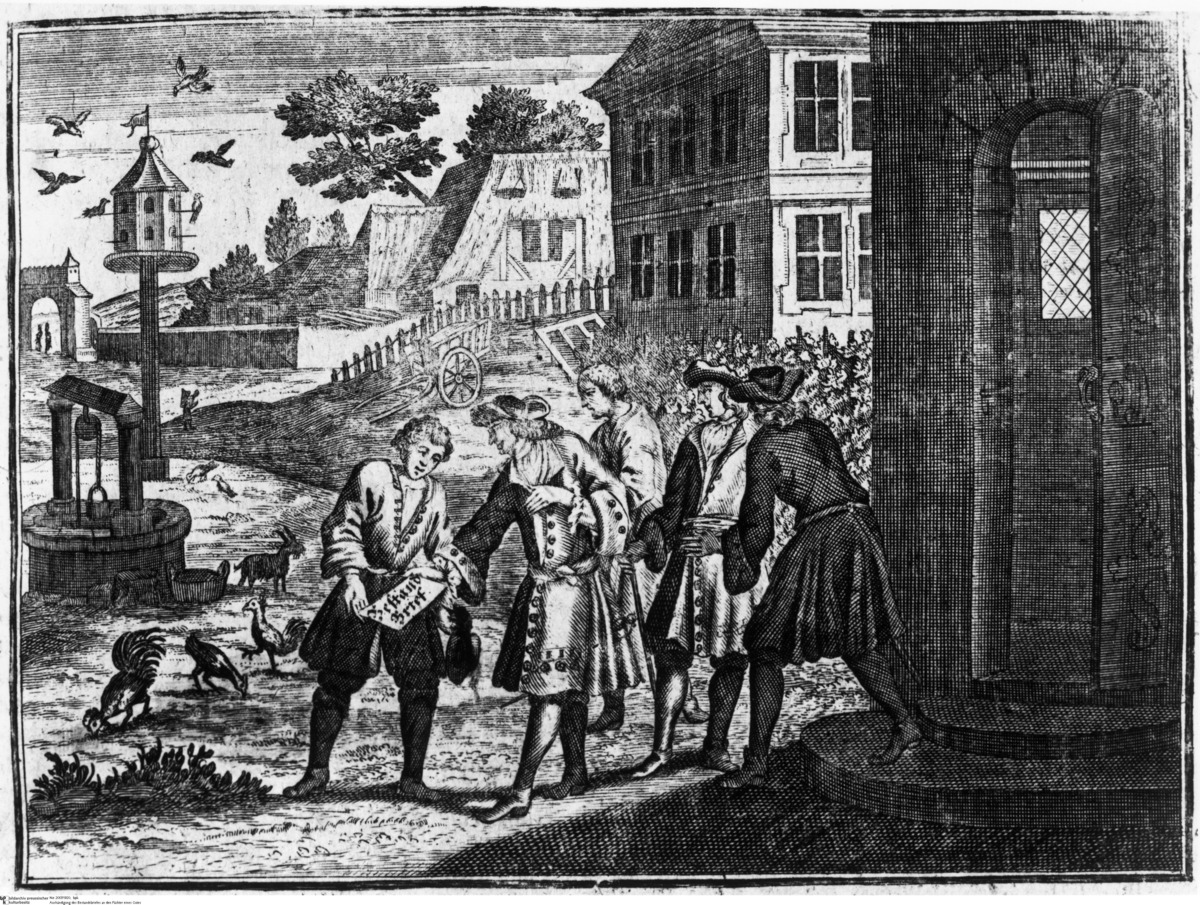Abstract
Taken from the 1750 edition of Franz Philipp Florinus’
Oeconomus prudens et legalis. Oder
Allgemeine kluge und rechtsverständige Hausvatter
[Oeconomus prudens et legalis. Or the
Generally Prudent and Judicious Housefather], the scene below shows
an estate owner bestowing a leasehold contract upon a young tenant
farmer. It was common throughout the German lands for farmers subject to
seigneurial overlordship to receive contracts or occupancy deeds
spelling out the rents they owed their landlord, as well as other
obligations, including those to elderly farm couples living in
retirement on the new tenant’s holding. Such contracts must be
distinguished from deeds of property-ownership in the modern sense of
undivided property. In the early modern world, landed property was
typically encumbered by multiple claims exercised by the state, the
church, the seigneurial lord, and the commoner tenant (whatever his
legal status, be it free or servile).
